|
Books Should Be Free Loyal Books Free Public Domain Audiobooks & eBook Downloads |
|
|
Books Should Be Free Loyal Books Free Public Domain Audiobooks & eBook Downloads |
|
Top Authors |
|---|
|
Book type:
Sort by:
|
By: B. M. Bower (1871-1940) | |
|---|---|
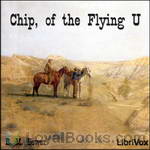 Chip, of the Flying U
Chip, of the Flying U
Cattleman J.G. Whittemore, owner of the Flying U ranch in Montana, trusts the task of meeting his sister at the train to only one man, Chip. Chip’s not too keen on women. In his experience they come in only a few types: prissy “sweet young thing”, annoying cowgirl, or old maid that wants to drag him to church. He isn’t prepared for Miss Della Whittemore, the “Little Doctor.” She turns the ranch upside down, but can she turn Chip head over heels? | |
 Cabin Fever
Cabin Fever
| |
 The Flying U Ranch
The Flying U Ranch
| |
 The Heritage of the Sioux
The Heritage of the Sioux
| |
 Her Prairie Knight
Her Prairie Knight
| |
 The Lookout Man
The Lookout Man
| |
 Good Indian
Good Indian
| |
 The Trail of the White Mule
The Trail of the White Mule
| |
 The Gringos
The Gringos
| |
 The Happy Family
The Happy Family
| |
 Skyrider
Skyrider
| |
 Lure of the Dim Trails
Lure of the Dim Trails
Phil Thurston was born on the range where the trails are dim and silent under the big sky. It was the place his father loved, the place he had to be. After the death of his father when he was five, his mother brought him back to the city, where he grew up and became a writer. To revive his stale writing, he returns to the West, and may just find what he is really missing. | |
 Jean of the Lazy A
Jean of the Lazy A
| |
 Casey Ryan
Casey Ryan
| |
 The Phantom Herd
The Phantom Herd
| |
 The Lonesome Trail and Other Stories
The Lonesome Trail and Other Stories
| |
 Sawtooth Ranch
Sawtooth Ranch
| |
 The Thunder Bird
The Thunder Bird
| |
 Starr, of the Desert
Starr, of the Desert
| |
 The Ranch at the Wolverine
The Ranch at the Wolverine
| |
 Rim o' the World
Rim o' the World
| |
 Cow-Country
Cow-Country
| |
By: Lavinia Honeyman Porter | |
|---|---|
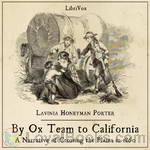 By Ox Team to California - A Narrative of Crossing the Plains in 1860
By Ox Team to California - A Narrative of Crossing the Plains in 1860
Imagine a young, twenty-something woman in 1860, reared “in the indolent life of the ordinary Southern girl” (which means she has never learned to cook); married to a professional man who knows “nothing of manual labor;” who is mother to a young son; and who has just found out she is pregnant with their second child. Imagine that this couple has become “embarrassed financially” by “imprudent speculations,” and that they are discussing what to do. They decide to buy a wagon and three yoke of unbroke oxen and head overland to California... | |
By: Montague R. James (1862-1936) | |
|---|---|
 The Wanderings and Homes of Manuscripts Helps for Students of History, No. 17.
The Wanderings and Homes of Manuscripts Helps for Students of History, No. 17.
| |
By: Elbert Hubbard (1856-1915) | |
|---|---|
 A Message to Garcia Being a Preachment
A Message to Garcia Being a Preachment
| |
 John Jacob Astor
John Jacob Astor
| |
 Love, Life & Work Being a Book of Opinions Reasonably Good-Natured Concerning How to Attain the Highest Happiness for One's Self with the Least Possible Harm to Others
Love, Life & Work Being a Book of Opinions Reasonably Good-Natured Concerning How to Attain the Highest Happiness for One's Self with the Least Possible Harm to Others
| |
 The Roycroft Dictionary Concocted by Ali Baba and the Bunch on Rainy Days.
The Roycroft Dictionary Concocted by Ali Baba and the Bunch on Rainy Days.
| |
 Mintage
Mintage
Elbert Hubbard is best known as the author of the "Little Journeys To The Homes of Famous People". These 11 short stores show the side of him that celebrated caring, friendship love among humans. The first describes how 5 frightened orphan children from a foreign country were cared for on a railroad journey of a thousand miles; all by strangers without any planning and without a word of English being spoken or needed. He observed caring human men and women of all ages doing whatever was necessary to see they reached their destination in whatever comfort could be provided... | |
 Little Journeys
Little Journeys
LITTLE JOURNEYS TO THE HOMES OF THE GREATBY Elbert HubbardGEORGE ELIOTMay I reach That purest heaven, be to other souls The cup of strength in some great agony, Enkindle generous ardor, feed pure love, Beget the smiles that have no cruelty-- Be the good presence of a good diffused, And in diffusion ever more intense. So shall I join the choir invisible Whose music is the gladness of the world. Warwickshire gave to the world William Shakespeare. It also gave Mary Ann Evans. No one will question that... | |
 Little Journeys to the Homes of the Great
Little Journeys to the Homes of the Great
LITTLE JOURNEYS TO THE HOMES OF AMERICAN STATESMENBy ELBERT HUBBARDBERT HUBBARD A little more patience, a little more charity for all, a little more devotion, a little more love; with less bowing down to the past, and a silent ignoring of pretended authority; a brave looking forward to the future with more faith in our fellows, and the race will be ripe for a great burst of light and life. --Elbert Hubbard It was not built with the idea of ever becoming a place in history: simply a boys' cabin in the woods... | |
By: George Wharton Edwards (1859-1950) | |
|---|---|
 A Book of Old English Ballads
A Book of Old English Ballads
In this selection... the aim has been to bring within moderate compass a collection of these songs of the people which should fairly represent the range, the descriptive felicity, the dramatic power, and the genuine poetic feeling of a body of verse which is still, it is to be feared, unfamiliar to a large number of those to whom it would bring refreshment and delight. | |
By: Adam Mickiewicz (1798-1855) | |
|---|---|
 Pan Tadeusz Or, the Last Foray in Lithuania; a Story of Life Among Polish Gentlefolk in the Years 1811 and 1812
Pan Tadeusz Or, the Last Foray in Lithuania; a Story of Life Among Polish Gentlefolk in the Years 1811 and 1812
| |
By: Vitruvius Pollio | |
|---|---|
 An Abridgment of the Architecture of Vitruvius Containing a System of the Whole Works of that Author
An Abridgment of the Architecture of Vitruvius Containing a System of the Whole Works of that Author
| |
By: Adam Mickiewicz (1798-1855) | |
|---|---|
 Konrad Wallenrod
Konrad Wallenrod
| |
By: George Wharton Edwards (1859-1950) | |
|---|---|
 Vanished towers and chimes of Flanders
Vanished towers and chimes of Flanders
| |
By: Adam Mickiewicz (1798-1855) | |
|---|---|
 Sonnets from the Crimea
Sonnets from the Crimea
| |
 My First Battle A Sergeant's Story
My First Battle A Sergeant's Story
| |
By: Rudolf Erich Raspe (1737-1794) | |
|---|---|
 The Surprising Adventures of Baron Munchausen
The Surprising Adventures of Baron Munchausen
The stories about Münchhausen were first collected and published by an anonymous author in 1781. An English version was published in London in 1785, by Rudolf Erich Raspe, as Baron Munchhausen's Narrative of his Marvellous Travels and Campaigns in Russia, also called The Surprising Adventures of Baron Munchhausen. It is not clear how much of the story material derives from the Baron himself; however, it is known that the majority of the stories are based on folktales that have been in circulation for many centuries before Münchhausen's birth. | |
By: Gustave Doré (1832-1883) | |
|---|---|
 The Doré Gallery of Bible Illustrations
The Doré Gallery of Bible Illustrations
| |
 Two Hundred Sketches Humorous and Grotesque
Two Hundred Sketches Humorous and Grotesque
| |
By: Dinah Maria Craik (1826-1887) | |
|---|---|
 Olive
Olive
Inspired by Jane Eyre, Dinah Maria Craik's 1850 novel, Olive, was one of the first to feature a disabled central character. 'Slightly deformed' from birth, Olive believes that she will never be able to marry like other women, so she devotes her life to her art, her mother, and above all, her religion. It takes a dark secret from the past and a new, fascinating acquaintance, to make her realize what her life could be. | |
By: Mary Ashley Townsend (1832-1901) | |
|---|---|
 The Brother Clerks A Tale of New-Orleans
The Brother Clerks A Tale of New-Orleans
| |
By: Armando Palacio Valdés (1853-1938) | |
|---|---|
 The Grandee
The Grandee
| |
 Maximina
Maximina
| |
By: James E. Seaver (1787-1827) | |
|---|---|
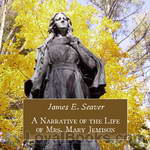 A Narrative of the Life of Mrs. Mary Jemison
A Narrative of the Life of Mrs. Mary Jemison
Mrs. Mary Jemison was taken by the Indians, in the year 1755, when only about twelve years of age, and has continued to reside amongst them to the present time. Containing an account of the murder of her father and his family; her sufferings; her marriage to two Indians; her troubles with her children; barbarities of the Indians in the French and Revolutionary Wars; the life of her last husband, and many historical facts never before published. | |
By: Francis Fisher Browne (1843-1913) | |
|---|---|
 Every-day Life of Abraham Lincoln
Every-day Life of Abraham Lincoln
This detailed biography covers the places in Lincoln's life: Indiana, Illinois, Washington. It also traces his various roles as storekeeper, serviceman, state legislator, lawyer, politician, Republican Party leader, and of course President. Along the way we learn about his days of hardship as a beginning lawyer, his love for Anne Rutledge, such myths as "Honest Abe," and his deep concerns over the issue of slavery. The author uses Lincoln's correspondence with others to show his personality traits and opinions about topics of his world. | |
By: Mary Raymond Shipman Andrews (1860-1936) | |
|---|---|
 The Courage of the Commonplace
The Courage of the Commonplace
The short story of a young man who came to terms with himself and became a man on a day when he had proven to be a failure to his family, his friends, his classmates, the girl he liked, and most importantly to himself. | |
 Joy in the Morning
Joy in the Morning
| |
 A Good Samaritan
A Good Samaritan
| |
 The Militants Stories of Some Parsons, Soldiers, and Other Fighters in the World
The Militants Stories of Some Parsons, Soldiers, and Other Fighters in the World
| |
 The Lifted Bandage
The Lifted Bandage
| |
By: Stefan Zweig (1881-1942) | |
|---|---|
 Romain Rolland The Man and His Work
Romain Rolland The Man and His Work
| |
 Paul Verlaine
Paul Verlaine
| |
 Émile Verhaeren
Émile Verhaeren
| |
By: Dorothy C. Paine | |
|---|---|
 A Little Florida Lady
A Little Florida Lady
This is the story of a little girl from New York who moves with her family to Florida in the late 19th Century. Parental warning: as this book was first published in 1903 and set in the American South, and although the author tries to be open-minded, please be aware that there are slang words used for African Americans. | |
By: Julius Caesar (100 BC - 44 BC) | |
|---|---|
 "De Bello Gallico" and Other Commentaries
"De Bello Gallico" and Other Commentaries
| |
By: George Rawlinson (1812-1902) | |
|---|---|
 Ancient Egypt
Ancient Egypt
| |
 History of Phoenicia
History of Phoenicia
| |
 The Seven Great Monarchies Of The Ancient Eastern World
The Seven Great Monarchies Of The Ancient Eastern World
| |
By: John W. Campbell (1910-1971) | |
|---|---|
 The Ultimate Weapon
The Ultimate Weapon
The star Mira was unpredictably variable. Sometimes it was blazing, brilliant and hot. Other times it was oddly dim, cool, shedding little warmth on its many planets. Gresth Gkae, leader of the Mirans, was seeking a better star, one to which his "people" could migrate. That star had to be steady, reliable, with a good planetary system. And in his astronomical searching, he found Sol.With hundreds of ships, each larger than whole Terrestrial spaceports, and traveling faster than the speed of light, the Mirans set out to move in to Solar regions and take over... | |
By: John Wood Campbell Jr. (1910-1971) | |
|---|---|
 The Black Star Passes
The Black Star Passes
A sky pirate armed with superior weapons of his own invention... First contact with an alien race dangerous enough to threaten the safety of two planets... The arrival of an unseen dark sun whose attendant marauders aimed at the very end of civilization in this Solar System. These were the three challenges that tested the skill and minds of the brilliant team of scientist-astronauts Arcot, Wade, and Morey. Their initial adventures are a classic of science-fiction which first brought the name of their author, John W. Campbell, into prominence as a master of the inventive imagination. | |
By: John Wood Campbell. Jr. (1910-1971) | |
|---|---|
 Islands of Space
Islands of Space
As Earth's faster-than-light spaceship hung in the void between galaxies, Arcot, Wade, Morey and Fuller could see below them, like a vast shining horizon, the mass of stars that formed their own island universe. Morey worked a moment with his slide rule, then said, "We made good time! Twenty-nine light years in ten seconds! Yet you had it on at only half power...." Arcot pushed the control lever all the way to full power. The ship filled with the strain of flowing energy, and sparks snapped in the air of the control room as they raced at an inconceivable speed through the darkness of intergalactic space... | |
 Invaders from the Infinite
Invaders from the Infinite
The famous scientific trio of Arcot, Wade and Morey, challenged by the most ruthless aliens in all the universes, blasted off on an intergalactic search for defenses against the invaders of Earth and all her allies. World after world was visited, secret after secret unleashed, and turned to mighty weapons of intense force--and still the Thessian enemy seemed to grow in power and ferocity. Mighty battles between huge space armadas were but skirmishes in the galactic war, as the invincible aliens savagely advanced and the Earth team hurled bolt after bolt of pure ravening energy--until it appeared that the universe itself might end in one final flare of furious torrential power.... | |
By: The Gawain Poet | |
|---|---|
 Pearl
Pearl
Written in the 14th century by the Gawain poet, 'Pearl' is an elegiac poem reflecting on the death of a young daughter, pictured as a pearl lost in a garden. It is considered a masterpiece of Middle English verse, incorporating both the older tradition of alliterative poetry as well as rhyme, centered around the development of an intricately structured image. Sophie Jewett's translation from the Northern dialect of the original renders much of the poem's liveliness and beauty accessible to modern readers, whilst encouraging them to pursue their reading further, to read the original itself.This recording is dedicated to the memory of Pearl Jean Shearman, 1914-2012. | |
By: Annie F. Johnston (1863-1931) | |
|---|---|
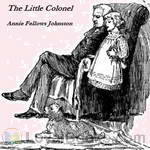 The Little Colonel
The Little Colonel
The scene of this story is laid in Kentucky. Its heroine is a small girl, who is known as the Little Colonel, on account of her fancied resemblance to an old-school Southern gentleman, whose fine estate and old family are famous in the region. (Introduction taken from original book.) | |
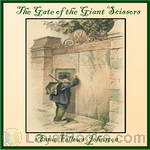 The Gate of the Giant Scissors
The Gate of the Giant Scissors
This is the story of Joyce, an American girl who has been sent abroad to France to study, and of her adventures in France, - the wonderful house with the gate of The Giant Scissors, Jules, her little playmate, Sister Denis, the cruel Brossard, and her dear Aunt Kate. | |
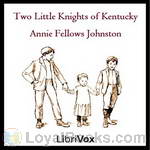 Two Little Knights of Kentucky
Two Little Knights of Kentucky
In This volume the Little Colonel returns to us like an old friend, but with added grace and charm. She is not, however, the central figure of the story, that place being taken by the “two little knights,” Malcolm and Keith, little Southern aristocrats, whose chivalrous natures lead them through a series of interesting adventures. | |
By: Eleanor H. Porter (1868-1920) | |
|---|---|
 Mary Marie
Mary Marie
A charming 'coming of age' story about a young girl, Mary Marie, whose young life is thrown into turmoil as her parents divorce. As she leads two lives, she comes to realize that her parents still love one another, and engineers a reunion. In the end, we discover the long-lasting effect of this turmoil on the adult Mary Marie, and her own marriage." | |
 Turn Of The Tide
Turn Of The Tide
"What a joy! How exciting! Margret Kendall returned home, to her loving and equally beloved mother's arms after 4 years in the slums of New York City- where she endured unimaginable hardships. This hardship made the naturally brilliant nine-years-old strong, resourceful, and full of questions which her mother finds it hard to answer. But this is not the end of the problems she would have to face. Those will include her mother's intended marriage, her need to get along with her stepfather's people, and her ever present worry about her poor friends from New York who were there for her in her darkest moments... | |
 The Tangled Threads
The Tangled Threads
| |
 Across The Years
Across The Years
These 18 wonderful short stories by Eleanor H. Porter, the author of Pollyanna, deal with those marvelous and maddeningly frustrating creatures: human beings. As always, Porter describes real people with sensitivity and an insight into all of their variety that makes you say "I knew someone just like that". She is able to capture the faded, but not quite extinguished, dreams of the elderly and the bright hopes of youth. The theme of this collection is how we humans deal with life and love throughout our lives, "Across the Years", no matter where we are or what era we live in. | |